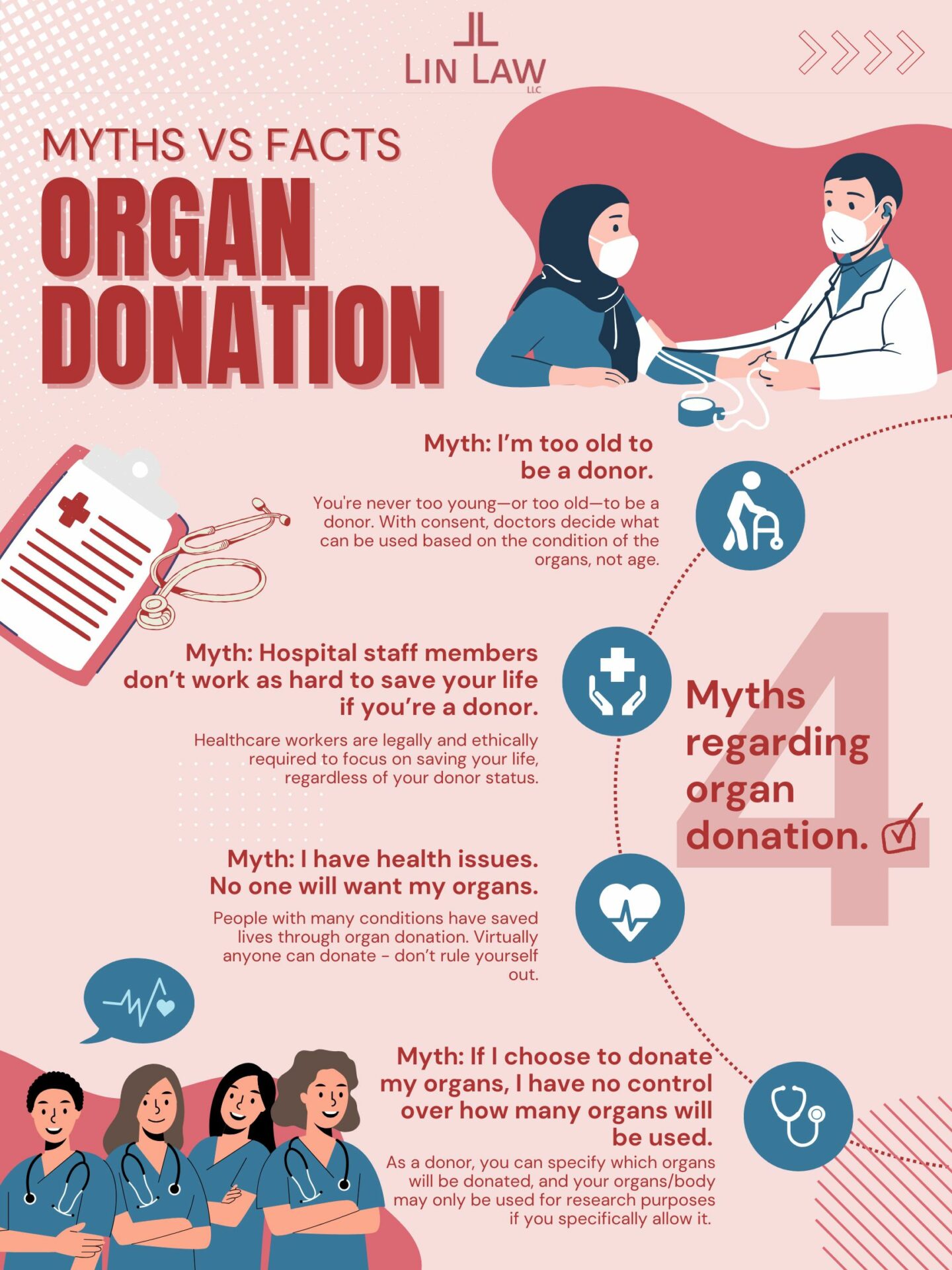Many people support the idea of organ donation — but common misconceptions often get in the way.
Some believe they’re too old or too unhealthy to make a difference. Others worry their medical care might be compromised if they’re listed as a donor, that their family could be left with the costs, or that you can’t have an open casket funeral if you donate your organs. In reality, none of these myths hold up. You’re never too old to be a donor – with consent, doctors assess the condition of your organs, not your age. People with chronic conditions, including diabetes and cancer, have successfully donated organs. Families are never charged for the gift of organ or tissue donation. And, you or your designated agents have control over which organs are ultimately donated – and how they are used.
These decisions are deeply personal — and they’re worth thinking through as part of broader conversations about healthcare wishes and estate planning. Including your organ donation preferences in your advance directives ensures your intentions are clear and honored.
Knowledge leads to better planning — and potentially, to saving lives.
LinLawLLC OrganDonation MythsVsFacts DonateLife

